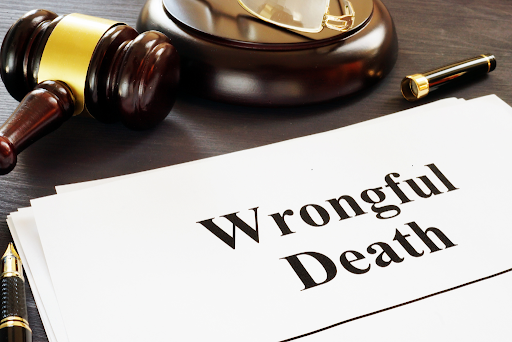
Facing the death of a loved one is a heart-wrenching experience, and the grief can be even more profound when their passing results from another’s negligence or wrongdoing. In such cases, filing a wrongful death lawsuit may offer a path to justice and financial compensation. According to experts from Affinity Lawyers, navigating this complex legal process requires careful preparation and expert guidance. They stress that understanding your rights and working with a skilled attorney can make a significant difference in achieving a successful resolution. This article will outline the critical steps to take in a wrongful death claim, offering insights into how to effectively pursue compensation and support during this challenging time.
1. Understanding Wrongful Death
A wrongful death lawsuit is a civil action brought by the survivors of a deceased person against those responsible for the death. This type of lawsuit aims to provide financial compensation for the losses suffered as a result of the death. Such cases can arise from various circumstances, including car accidents, medical malpractice, workplace accidents, and criminal acts.
2. Seek Legal Representation
The first and most crucial step in pursuing a wrongful death claim is to consult with a qualified attorney. A lawyer specializing in wrongful death cases can guide you through the legal process, help gather evidence, and build a strong case on your behalf. They can also help you understand your legal rights and the potential compensation you may be entitled to.
3. Gather Evidence
To support your claim, you’ll need to collect and present evidence proving that the defendant’s negligence or misconduct directly caused your loved one’s death. This may include:
Medical Records: Documents showing the cause of death and the medical treatment provided.
Accident Reports: Police or incident reports related to the circumstances leading to the death.
Witness Statements: Testimonies from individuals who witnessed the incident or have relevant information.
Expert Opinions: Expert analyses or testimonies that can support your claim of negligence or misconduct.
4. Establishing Liability
In a wrongful death lawsuit, you must prove that the defendant was legally responsible for the death. This involves demonstrating that:
- The defendant owed a duty of care to the deceased.
- The defendant breached that duty through negligence or misconduct.
- The breach directly caused the death.
- The death resulted in damages to the surviving family members.
Your attorney will help in establishing these elements by investigating the case, gathering evidence, and presenting it effectively in court.
5. Calculating Damages
Compensation in a wrongful death lawsuit can cover a range of damages, including:
- Economic Damages: These include medical expenses incurred before death, funeral and burial costs, and loss of financial support or contributions from the deceased.
- Non-Economic Damages: These address the emotional impact of the loss, such as pain and suffering, loss of companionship, and loss of consortium.
- Punitive Damages: In some cases, if the defendant’s conduct was particularly egregious, the court may award punitive damages to punish the defendant and deter similar behavior in the future.
Your attorney will help assess the full extent of damages and work to ensure that you receive fair compensation for both tangible and intangible losses.
6. Navigating the Legal Process
Once you file a wrongful death lawsuit, the legal process involves several stages, including:
- Filing the Complaint: Your attorney will draft and file a complaint outlining the allegations against the defendant.
- Discovery: Both parties exchange information and evidence relevant to the case.
- Negotiation and Settlement: Many wrongful death cases are settled out of court. Your attorney will negotiate on your behalf to reach a fair settlement.
- Trial: If a settlement cannot be reached, the case may go to trial where both sides present their arguments, and a judge or jury renders a verdict.
7. Consider the Statute of Limitations
Each state has a statute of limitations that sets a deadline for filing a wrongful death lawsuit. It’s essential to be aware of this deadline and initiate legal action within the prescribed timeframe to avoid losing your right to seek compensation.
8. Stay Informed and Supported
Throughout the process, stay informed about your case and seek support from family, friends, or support groups. The legal journey can be complex and emotionally taxing, but having a solid support system can help you navigate the challenges more effectively.
Conclusion
Securing compensation in a wrongful death lawsuit requires a clear understanding of the legal process, meticulous preparation, and effective representation. By working with a skilled attorney, gathering compelling evidence, and focusing on the key aspects of your case, you can pursue justice and financial redress for the loss of your loved one. While no amount of money can replace what has been lost, a successful lawsuit can provide some measure of closure and financial relief during a profoundly difficult time.
